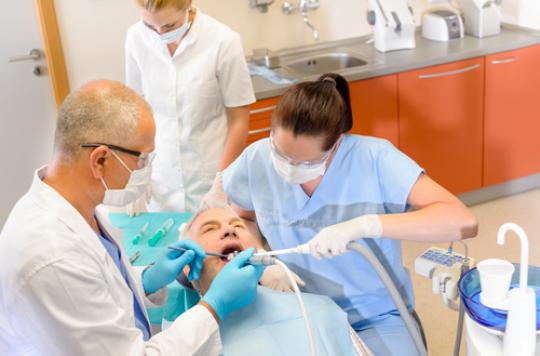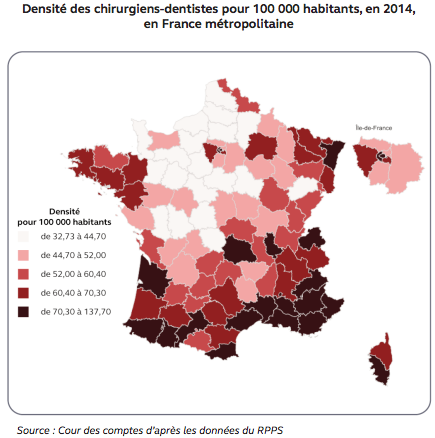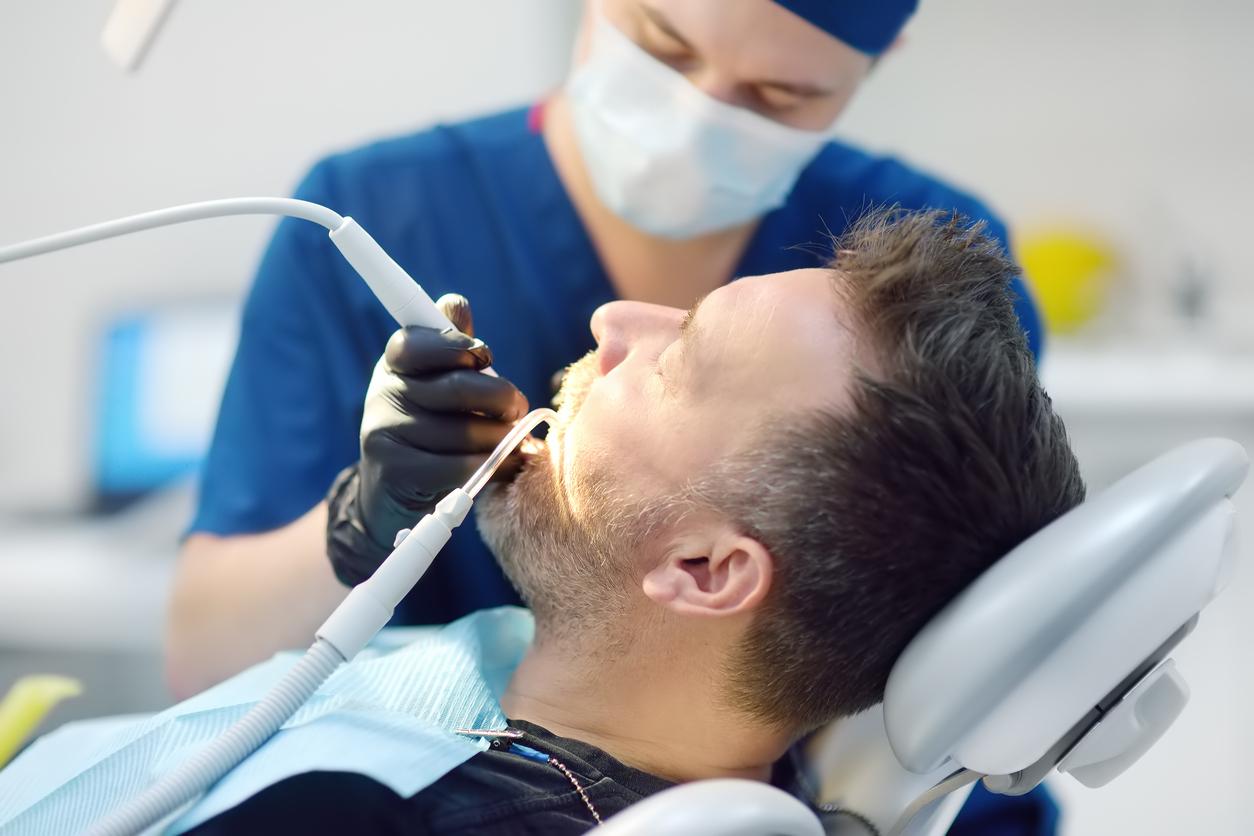Price inequalities, waivers of care, neglected territories: the Court of Auditors is sounding the alarm on the state of dental care in France.

The Court of Auditors made public this Tuesday, September 20, 2016 its report on the application of social security financing laws. “The reduction of the social security deficit continued in 2015,” she says. However, “it remains high and its persistence remains a singular anomaly with regard to most of our neighbors”, immediately tempers the institution.
“The recovery of the social accounts should thus continue in 2016”, she hopes. With the risk that actions to control expenditure will further increase the strong territorial disparities in access to care observed in the territory. And in this report, the illustration of the most glaring disengagement from Health Insurance is once again oral care (€ 10.6 billion). They are no longer reimbursed by Health Insurance at up to 33%.
Strong inequalities of territorial access
Strong inequalities in access to healthcare according to income should be noted. Despite the spread of additional cover, many policyholders still indicate giving up care for financial reasons. According to a survey, cited by the Court of Auditors, they were 18% in 2012, twice the European average. This is much more than for optics (9.8%) and medical consultations (5.5%).
Alone, the dental sector would even concentrate nearly half of the waivers of care in France, warns the report. And in this area, inequalities in access to healthcare are also territorial. The rapporteurs stress that “depending on the territory, the density of practitioners is very heterogeneous and pricing practices diverge”. “The financial incentives for the establishment of practitioners in underserved areas implemented since 2012 have no significant effect”, even deplores the Court of Auditors.
Consequently, the state of oral health of the French population is described here as “mediocre” compared to the European average. By way of comparison, in Germany, patients ultimately pay 10% of the bill, while the French find themselves with an outstanding charge representing 25% of the total cost.

The recommendations of the Court of Auditors
Faced with these inequalities, the Sages of rue Cambon (Paris) call for “vigorous action by the public authorities in the face of the consequences of this disengagement”. As such, they issue recommendations. For example, by calling for the development of prevention, and by encouraging the development of care networks. The latter practice advantageous reimbursements when the patient remains faithful to a list of professionals established by the complementary. In addition, the Court of Auditors pleads to make selective the agreement of dental surgeons according to objectives of better access to care.
Finally, it envisages a “uncrossing” of responsibilities and funding between health insurance and supplementary insurance depending on the nature of the services (conservative / prosthetic care). As a reminder, since 2008, the main funder of oral health care spending has been complementary insurance (39% in 2014).
.















